|
The Conference
“Western Balkan Social Housing Initiative”
8 and 9 July 2010 in the Podgorica Hotel in
Podgorica, Montenegro

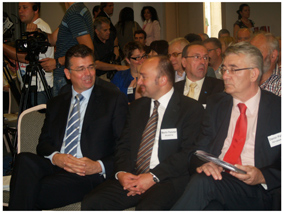 Affordable
housing has become an even more important issue
during and after the economic crisis. The
Montenegrin Fund for Solidarity Housing
Development (CFSSI) with support of IIBW –
Institute for Real Estate, Construction and
Housing Ltd. (Vienna) and other international
partners have developed a promising new approach
for the provision of affordable (rental)
dwellings and the execution of State social
housing policy. Three pillars are regarded
essential for this new approach: sound legal
regulations (PPP housing), a financing scheme
that allows for rents of Affordable
housing has become an even more important issue
during and after the economic crisis. The
Montenegrin Fund for Solidarity Housing
Development (CFSSI) with support of IIBW –
Institute for Real Estate, Construction and
Housing Ltd. (Vienna) and other international
partners have developed a promising new approach
for the provision of affordable (rental)
dwellings and the execution of State social
housing policy. Three pillars are regarded
essential for this new approach: sound legal
regulations (PPP housing), a financing scheme
that allows for rents of
2 to 3 €/m² and an institutional setting (social
partnership model). CFSSI has realized already
approx. 500 affordable owner-occupied and rental
dwellings, ca. 2,000 are in preparation. We are
well on the way to establish a social housing
sector covering all Montenegro.
Therefore, a conference having such a topic was
organized, as a joint effort of CFSSI, IIBW and
the Ministry for Spatial Planning and
Environment of Montenegro, in order to present
this innovative model of CFSSI based on the
social partnership of Government, trade union
and employers that proved to be very successful
in Montenegro, since this positive Montenegrin
experience seemed feasible for implementation in
countries with similar background.
The conference was attended by representatives
of five Western Balkan countries, another three
CEE countries, several Western European
countries and international organizations. We
appreciate particularly the participation of
CECODHAS, the European Liaison Committee for
Social Housing. CECODHAS supported our
conference as a possible starting point of
national social housing sectors in the region.
The two-day Conference had the following agenda:
Thursday 8 of July, 14:00
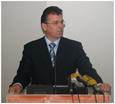 |
 |
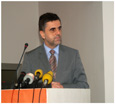 |
|
Branimir
Gvozdenović |
Martin Pamer |
Predrag Mitrović |
The conference was
opened by Branimir Gvozdenovic, Minister of
Spatial Planning and the Environment in the
Government of Montenegro, his Excellency Martin
Pammer, Ambassador of Austria and Predrag
Mitrovic, President of Montenegrin Employers
Federation. The first day was dedicated to the
political significance of PPP housing in the
region with keynote speeches of Danilo Popovic,
President of Board of Directors of CFSSI, and
Claire Roumet, Secretary General of CECODHAS,
followed by country reports on social housing
policy from all participating countries and an
open discussion.
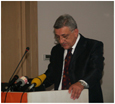 |
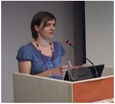 |
|
Danilo
Popović |
Kler Rume |
Friday 9 of July, 9:30
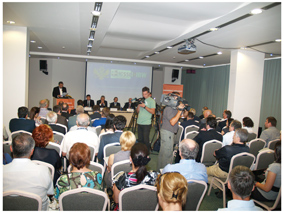 The
second day focused on the financial and
regulatory framework for PPP housing with
presentations of Boris Mihailovic, Executive
Director of CFSSI, Wolfgang Amann, Director of
IIBW, Damir Pahić and Sergii Yampolskyi from
UNECE, Robin Comanne from Housing Matters, Jan
de Vletter from DIGH – Dutch International
Guarantees for Housing, followed by an open
discussion on the implementation of PPP housing
in Western Balkan countries and a summary note
of Walter Schwimmer, IIBW, former Secretary
General of the Council of Europe. The
second day focused on the financial and
regulatory framework for PPP housing with
presentations of Boris Mihailovic, Executive
Director of CFSSI, Wolfgang Amann, Director of
IIBW, Damir Pahić and Sergii Yampolskyi from
UNECE, Robin Comanne from Housing Matters, Jan
de Vletter from DIGH – Dutch International
Guarantees for Housing, followed by an open
discussion on the implementation of PPP housing
in Western Balkan countries and a summary note
of Walter Schwimmer, IIBW, former Secretary
General of the Council of Europe.
In the afternoon, all the interested
participants of the Conference had the
opportunity to take part in a study tour to
CFSSI housing projects in Podgorica, Cetinje and
Budva.
The conference had several concrete outcomes:
The establishment of a Western Balkan
Social Housing Network is considered:
The Network may be a regional approach driven by
local stakeholders in social housing, newly
established social landlords or social partners
(Federations of Trade Unions, Federations of
Employers, governments) in other countries of
the region. It shall transfer knowhow between
the members and from Western European best
practice. In this function it shall support
members in the establishment of social housing
organisations in the respective countries,
complemented by support in political awareness
building and the adoption of legal regulations.
A regional approach will help social housing on
Western Balkans to be well represented on a
European level, e.g. in CECODHAS. Such a
regional approach may become a signal towards
Europe on growing convergence on Western
Balkans.
Single countries represented at the conference
have expressed their interest to establish
social partnership models for social housing,
following the model of CFSSI. CFSSI and IIBW
have expressed their willingness for support.
Possible CECODHAS initiatives:
CECODHAS was represented by the Secretary
General Mrs. Claire Roumet. It represents all
European national social housing organizations
on a European level. New EU member and candidate
States are presently underrepresented as after
transition social housing was no political focus
in those countries. It is recommended to
CECODHAS to establish a regional group on
Western Balkans within its structures.
Possible UNECE initiatives:
The United Nations Economic Commission for
Europe was represented by Damir Pahić, the
chairman of the Working Party of Land
Administration, Sergii Yampolskyi from the
Committee on Housing and Land Management and
Wolfgang Amann, presently chairman of REM, the
Real Estate Market Advisory Group of UNECE.
UNECE may support building up of social housing
sectors in the region with organisation of
events or the provision or update of country
reports, always following invitations from the
respective countries.
Translation of the REM/UNECE “Policy
Framework for Sustainable Real Estate Markets”:
The Real Estate Market Advisory Group (REM) of
UNECE has currently published these helpful
guidelines. Translations in several languages
are already on the way. Translation to
Montenegrin language would make this document
available for the whole Western Balkan as a
single language area.
Regional initiative for a graduate
education in real estate:
The real estate and housing sector in all
Western Balkan countries is lagging behind.
There is evidence in many Western countries that
the implementation of respective graduate
courses may strongly improve the situation
within a relatively short period of time. The
implementation of such graduate education will
lead to professionalization of the real estate
sector. At the same time such an institution may
become a focal point of future scientific,
economic and political development of real
estate sectors in the region.
Creation of literature:
Previous achievements and further challenges may
be strongly supported by scientific examination.
International researchers shall be motivated to
work on the housing sector in the region, aiming
at publishing in referred international
journals.
The Conference was evaluated as very successful,
both by its organizers and participants. We
believe that the social housing policy model
developed by our Fund may serve as best practice
model to all countries in the region. We also
believe that establishing affordable housing
schemes in Western Balkan countries can be an
important step towards Europe.
|